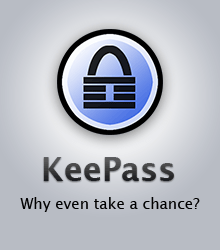Ten post dostępny jest także w języku: 
A few days ago, Google+ project had its premiere. It brings a nice breath of fresh air, but also presents a few elements that we already know. I think the most important message so far is that we are dealing with the first social networking Google service which has been well thought out and has good chances to go into mainstream.
Public, all, extended
Circles – a perfect solution to help take care of our privacy, indisputably better implemented than a group of friends on Facebook. Many see in them as an innovation, but once I saw them I knew they found this idea at Diaspora* project. The difference is, that G + presents it in a form that aspects should be done from the beginning. Firstly, management – in the Diaspora* has always been for me simply inconvenient. G+ presented two ways to manage contacts, but we have seen them both in Diaspora* already. You can see who has the gurus of usability, and who still have a lot to learn… The current way of contact management from Diaspora* can be found in notification system and former based on moving contacts into and between aspects can be seen on your circles page.
Google+ not only implements the idea of aspects, but also develops it in a very deliberate way through the Incoming tab. G+ instead of just letting us follow users which are following us also allows as to easily extend our network of friends thanks to the possibility of watching what people who are connected to us in any possible way – what does this mean in practice?
At the Incoming tab, we see posts of people who have us in their circles, but don’t follow them, and posts from friends of those who are in our circles. A little confusing … Our entries will land in someone’s Incoming tab in two cases: (1) we have someone in our circles, but he doesn’t, (2) we publish a post for extended circles, in this way we will get also to the people we don’t know, but with whom we have mutual friends. I hope I was able to present it well.
Private messages system
Here Diaspora* is far ahead with its recently implemented messaging system (which is close to that from Facebok), but it still requires some fixes. However its philosophy beats private messages in G+ where we can send PM to someone we have to send our message to their stream, and then manually disable the opportunity to re-share it. On the other hand, after each user having G+ account also has Gmail attached is PM system still needed?
Design …
To be honestly I wasn’t able to find out, whether Diaspora* implemented its refreshed design or G+ came out first. The fact is that both services look identical:

Comparison of the Diaspora* and Google+ layouts
For some time Diaspora* looked this way (aspects were previously in the horizontal menu below the avatar), but it still isn’t as clear as G+ or Facebook’s layout. It’s hard to blame anyone here for copying, because it looks like almost every social network service. Users are already used to services looking and feeling this way. Many people interested in IT pointed out Google+ lack of innovation in UI, but i think they forgot that major changes in the interfaces of Buzz and Wave were one of the reasons why they got rejected. IMO Google has learned the lesson because there is no point in re-inventing the wheel.
Hangouts, huddle and sparks
At this point I can’t see more similarities between Diaspora* and G+ which gives us much more opportunities for communication. I felt great after first hangout with my friends from #lisp-pl IRC channel. You simply have press the appropriate button, check your hair and choose a meeting or wait for friends to join. Hangouts are really well organized and we can also watch movies from YouTube with our friends. I hope that soon we will be able to use this service to collaborate on Google Docs.
Those who use Google+ for for mobile devices additionally gain access to the Huddle service. I think that it can shortly replace sms. Huddle allows as to create a chat with chosen friends or circles and switch to another huddle or another application at any time.
Sparkles are one of the most misunderstood services. It works for now just like Google News. You have to enter tags of your interest and Google will find for you interesting articles on the subject. Ultimately, articles soon will be suggested based on our and our friends +1’s but so far it is almost impossible to see all opportunities behind Sparks.
In Google+ we can also format the text and use a few keyboard shortcuts, which helps us to navigate through the site. More tips can be found on this Cheat Sheet:
Finally I would like to talk about one of the major innovations introduced by Google. Changed bar at the top of Google services allows us not only to quickly share something with friends in G+, but also to preview latest notifications, manage new friends and respond to followers comments at any time and any Google service:

G+ notifications in Google Reader
We can now use G+ from Google services that we use almost every day at work, such notifications allow us to react in G+ but aren’t too disturbing to keep us away from work for a long time. Thanks to innovations like this G+ has a real chance to get into mainstream and stay there as Facebook did by appearing on almost every website.
Competition
Subject who started to be very annoying for me, because its appearance in the context of Diaspora* project is usually quickly summarized by people saying that it Diaspora* has lost the competition before it even started. This means that there are people who consider Diaspora* developers as lunatics who think that a small FLOSS project they’ll be able to dethrone Facebook. Nothing could be more further from the truth!
Diaspora* is based on dissatisfaction with Facebook’s practices with handling our personal data but it also submits few more ideas to the whole social media service definition (which I’ve explained earlier in one of my posts – it’ll be also translated soon into English). Throughout frustration of Dan, Maxwell, Ilya and Rapahael they didn’t set themselves the goal of destructing Facebook, but to build a site that will be a great showcase of social media service done with greater respect for users private data. I’d rather understand its development as a research project, but most certainly Diaspora* its place somewhere as a commercial service. A big commercial project like Google+ which promotes a solution of aspects is so far the greatest success for Diaspora* project.
[flattr /]
There is also a question about services to compete for G+? I think that the same way as for the dethronement of Facebook by Diaspora* it is also not achievable for G+. Its formula to follow users without obligation to respond makes the new Google service rather competitor for Twitter and FriendFeed. It certainly more strongly than the Diaspora* shows users of Facebook that social service can be done with greater respect for their privacy.

There are many graphics on “Google + vs Facebook” topic but IMO this seems to be the most appropriate for the current situation.
This is a translation of my post from Polish Information Center About Diaspora* Project.




